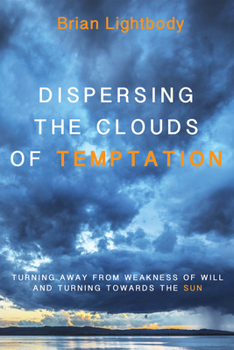Dispersing the Clouds of Temptation: Turning Away from Weakness of Will and Turning Towards the Sun
In Romans 7:14-25, Paul declares, "For I do not do the good I want, but the evil I do not want, is what I do" (KJV). St. Paul's statement is a universal truth for all human beings; humans--whether Christians, Jews, Muslims, Buddhists, Hindus, or atheists--are prone to committing free actions that are not "good." Furthermore, and irrespective of how we might construe the notion of "good" (whether as acting in accordance with some religious or spiritual precept or simply doing what is in one's best interest), we often knowingly and freely choose actions that may, or in fact do, harm us. There is a name given to such actions. We call them "weak-willed." "Weakness of will," or akrasia, has perplexed philosophers, theologians, and laypersons alike for centuries. This book reveals why the idea has caused so much bafflement and consternation for so many. The main thrust of the work, however, is to illuminate and inspire: Lightbody seeks to demonstrate, concretely, how and why we are weak-willed. By extracting an "alchemical touchstone" from Plato's middle period philosophy, Lightbody, in addition, reveals how we may transmute harmful appetites into life-edifying passions.
Format:Paperback
Language:English
ISBN:1610970748
ISBN13:9781610970747
Release Date:April 2015
Publisher:Pickwick Publications
Length:154 Pages
Weight:0.50 lbs.
Dimensions:0.5" x 5.9" x 8.9"
Customer Reviews
0 rating





